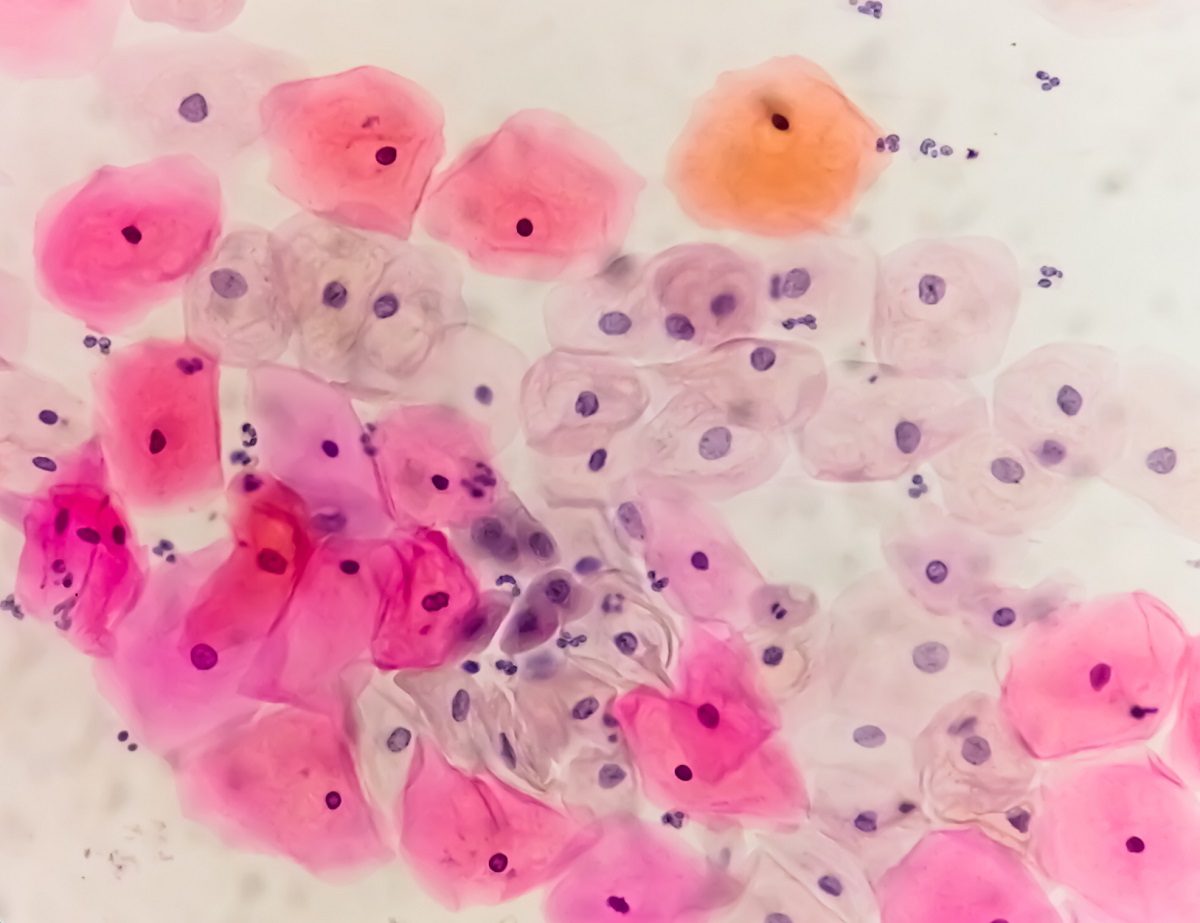KEY TAKEAWAYS
- The KEYVIBE-005 phase 2 trial aimed to investigate the association between biomarkers and response to coformulated vibo/pembro treatment in patients with metastatic CC.
- Researchers observed positive associations between biomarkers PD-L1 and TcellinfGEP with response to vibo/pembro in PD-L1 CPS ≥1 metastatic CC.
In the multicohort KEYVIBE-005 study (NCT05007106), vibostolimab/pembrolizumab (vibo/pembro) (n = 85) showed antitumor activity similar to pembro (n = 84; ORR, 20.0% vs 15.5%) with a manageable safety profile in patients with previously untreated metastatic cervical cancer (CC) with PD-L1 CPS ≥1. They evaluated the association between biomarkers and response to treatment in this cohort.
Christophe Le Tourneau aimed to assess the efficacy and safety of vibo/pembro in patients with previously untreated metastatic CC expressing PD-L1 CPS ≥1.
They performed an inclusive analysis using tumor samples to evaluate TIGIT expression on immune cells (clone SP410, FLA assay), PD-L1 CPS (PD-L1 22C3 pharmDx) by IHC, T-cell–inflamed gene expression profile (TcellinfGEP) by NanoString, and TMB by WES. ORR and PFS were assessed, with prespecified significance of continuous biomarkers at 0.05 for 1-sided P values from logistic (ORR) and Cox proportional hazard (PFS) regression.
ctDNA was isolated from pretreatment plasma samples collected on day 1 at cycle 1 (C1), C2, and C3 and sequenced using a personalized tumor-informed assay (Invitae PCM); quantity was expressed as maximum somatic allele frequency (MSAF).
They reported AUROCs (95% CI) for discriminating response to vibo/pembro: TIGIT, 0.64 (0.48-0.80); PD-L1, 0.72 (0.61-0.83); TcellinfGEP, 0.71 (0.56-0.86); and TMB, 0.74 (0.58-0.91). For pembro, AUROCs (95% CI) were: TIGIT, 0.63 (0.47-0.79); PD-L1, 0.68 (0.50-0.86); TcellinfGEP, 0.65 (0.46-0.84); and TMB, 0.71 (0.46-0.95). Median ctDNA MSAF reductions were 21% at C2 and 32% at C3 with vibo/pembro (from C1), compared with 4% and 6% reductions, respectively, with pembro.
The study concluded that in patients with CC and PD-L1 CPS ≥1, all biomarkers showed a positive association with response to vibo/pembro, with PD-L1 and TcellinfGEP exhibiting the strongest associations. Additionally, trends indicated greater reductions in ctDNA with vibo/pembro compared to pembro.
The trial was funded by Merck Sharp & Dohme LLC.
Source: https://cslide.ctimeetingtech.com/gynae24hybrid/attendee/confcal/show/session/21
Clinical Trial: https://clinicaltrials.gov/study/NCT05007106
Tourneau C.L., (2024). “Association of biomarkers with response to coformulated vibostolimab/pembrolizumab (vibo/pembro) in metastatic cervical cancer (CC): Exploratory analysis from the phase II KEYVIBE-005 study.” Presented at ESMO-GC 2024 (Abstract 22O).



